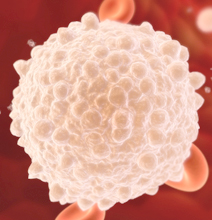Immunotherapy
Immunotherapy is a type of treatment that treats cancer by triggering a new, or boosting an existing immune response against the cancer.
Immune system – the network of cells, tissues, and organs that protects the body from diseases, such as those caused by bacteria or viruses
Major advances have been done in the last few years in immunotherapy, which is now seen as one the most promising areas for cancer treatment. Since 2010, several clinical trials using immunotherapies, often against late-stage tumors previously considered incurable, showed remarkable results.
Immunotherapy has also a unique characteristic among cancer treatments: because it relies on the body's natural defense mechanism (the immune system) it can lead to immunological memory.
What is immunological memory?
When we first encounter a disease, our immune system takes some time to multiply enough cells to defeat the infectious microorganism behind it.
On the next encounter(s), the response is much faster, often killing the microorganism even before we develop symptoms.
The reason is immunological memory; fast-responding cells against that microorganism are left behind after our first encounter with the disease. They act like guards against the particular type of microbe.
This is also how vaccines work – except that in vaccines our first contact is with a weakened version of a microorganism, so we can develop this immunological memory without ever having the disease.
If immunotherapy can generate immunological memory, this means that a response to cancer continues after the end of the treatment, eliminating rogue cancer cells spread in the body and preventing recurrence of the disease.
Although this still needs to be further proven, there are reports of patients, with supposedly incurable advanced stage skin cancers, who after being treated with immunotherapy have been free of disease for a long time.
Immunotherapy is mainly done in two ways:
- Using components from the immune system produced in laboratory, for example monoclonal antibodies(mAb)
- By boosting the natural immune response of the patient against cancer
Different types of agents can also be used in immunotherapy. We will talk here about those currently most in use - monoclonal antibodies – and about some promising new results using cancer vaccines





